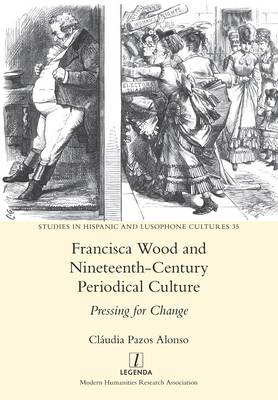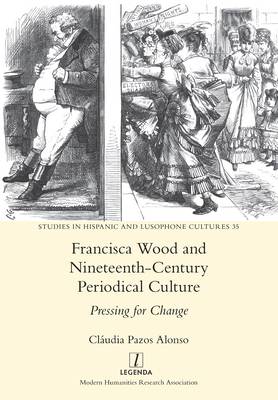
- Retrait gratuit dans votre magasin Club
- 7.000.000 titres dans notre catalogue
- Payer en toute sécurité
- Toujours un magasin près de chez vous
- Retrait gratuit dans votre magasin Club
- 7.000.000 titres dans notre catalogue
- Payer en toute sécurité
- Toujours un magasin près de chez vous
Description
This monograph offers the first full-length account of the political intervention of the nineteenth-century journalist, novelist and translator Francisca de Assis Martins Wood (1802-1900). Her unusual profile included several decades spent in England, which shaped her perception of Portugal. Why then was her intriguing life-story not examined earlier? And why did mid-nineteenth century female authorship remain neglected for so long in Portuguese cultural memory? After revisiting such matters with fresh eyes, the focus turns to the pioneer weekly periodical that Wood headed for two years, A Voz Feminina, later rebranded O Progresso.
Crucially, during an age when the transnational circulation of ideas became amplified through the press, the cosmopolitan Wood cultivated strategic connections with early suffragists across Europe. In a string of remarkable editorials, she tackled Church hegemony and pushed for women's rights. Her daring anticlerical thinking in the late 1860s, which anticipated an agenda more readily associated to this day with the work of Eça de Queirós, stands out for the sheer modernity of its gender analysis. One hundred and fifty years on, this study uncovers the backlash against Wood's progressive views, led by another Lisbon-based periodical, Bem Público [The Public Good], and reclaims this salient public intellectual as a worthy precursor of Portuguese first-wave feminism.
Cláudia Pazos Alonso is Professor of Portuguese and Gender Studies at the University of Oxford and a Fellow of Wadham College.
Spécifications
Parties prenantes
- Auteur(s) :
- Editeur:
Contenu
- Nombre de pages :
- 250
- Langue:
- Anglais
- Collection :
- Tome:
- n° 35
Caractéristiques
- EAN:
- 9781781888001
- Date de parution :
- 25-07-22
- Format:
- Livre broché
- Format numérique:
- Trade paperback (VS)
- Dimensions :
- 170 mm x 244 mm
- Poids :
- 403 g







